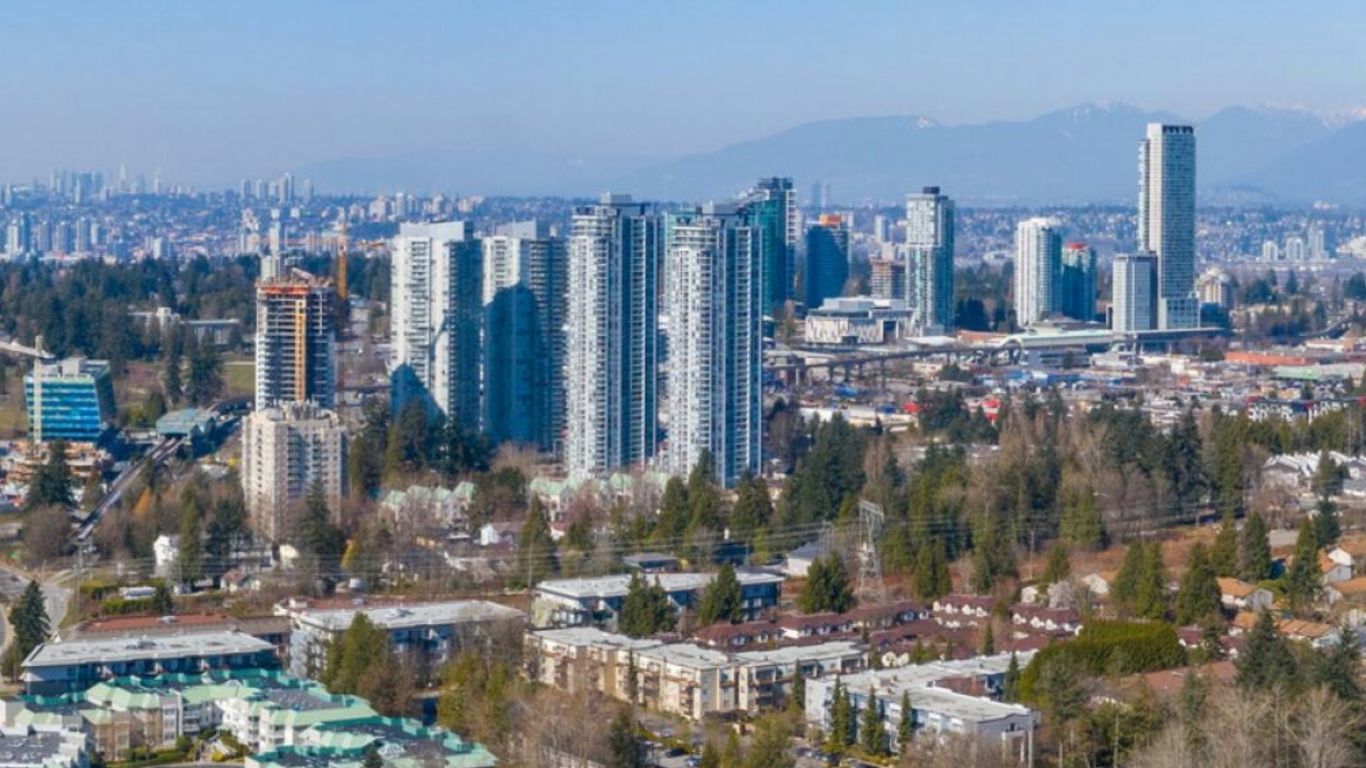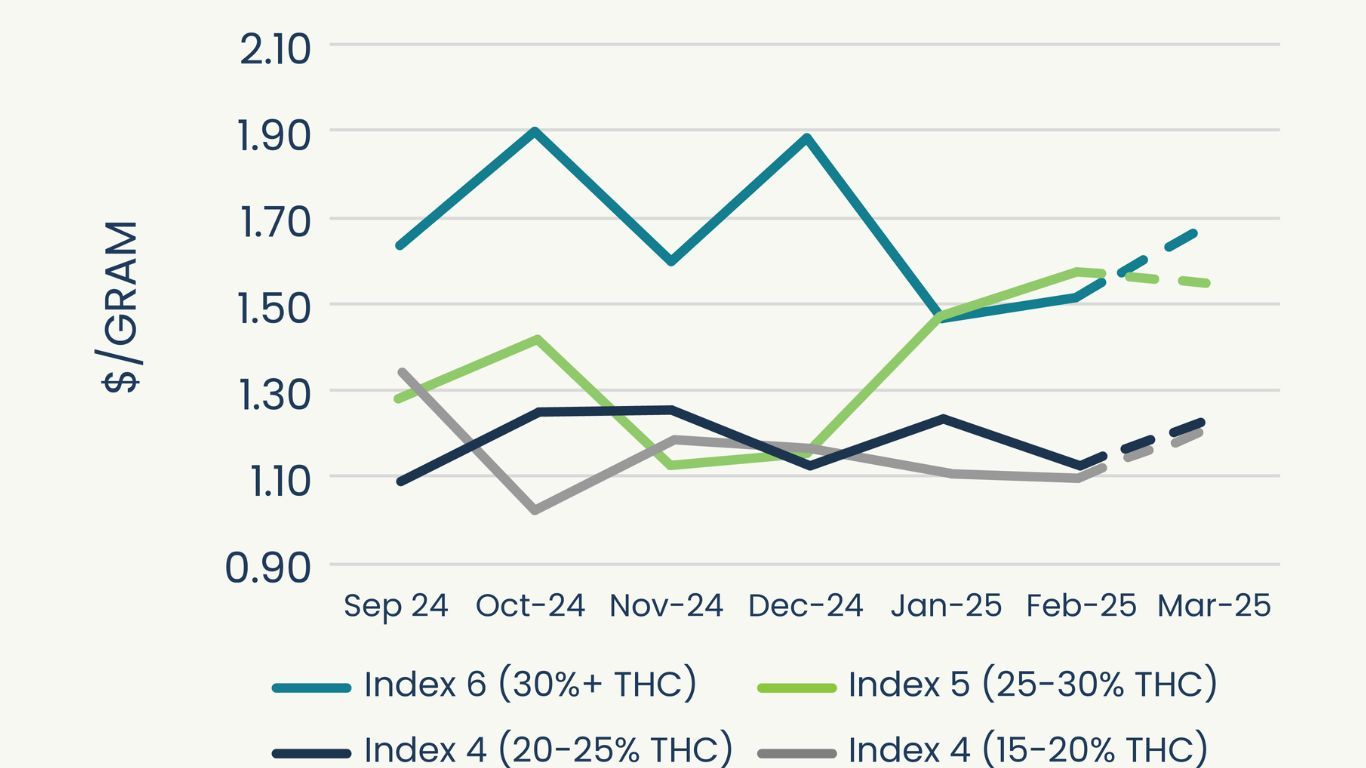
The BC government has introduced new legislation intended to help them get a handle on online illicit cannabis sales in the province.
Bill 30, the Cannabis Control and Licensing Amendment Act, 2022, tabled on October 4 and read a second time on October 5, will head to committee next for more in-depth debate.
The government says the changes to legislation are needed to address a shift from illicit brick-and-mortar stores to online stores, but some opposition members say there is still more work to be done to address the many illegal, unlicensed brick-and-mortar stores that continue to proliferate, especially in BC’s Interior.
The legislation, introduced by BC Minister of Public Safety and Solicitor General Mike Farnworth, who has been the BC government’s lead on the cannabis file, says one of the purposes of the legislation is to amend the existing provincial cannabis regulations in order to give more enforcement power to the BC Community Safety Unit (CSU) against illicit online cannabis operators.
The CSU is the main provincial enforcement unit for illicit cannabis sales in BC. Under the Policing and Security Branch of the Ministry of Public Safety and Solicitor General, it is responsible for compliance and enforcement under the provincial Cannabis Control and Licensing Act (CCLA), with a focus on the illegal sale of cannabis. CSU investigators are authorized to carry out compliance and enforcement activities against unlicensed cannabis retailers and other illegal sellers across the province.
Although the CSU was initially created to deal with the large number of illicit brick-and-mortar cannabis stores in the province, the government says they are now seeing illicit operators shift into the online market.
“These amendments will improve CSU’s ability to target illicit online stores and production sites by clarifying and, in some places, expanding CSU inspection and seizure authorities. They will also improve CSU’s ability to track online illicit cannabis back to its source by authorizing the director of the CSU, the community safety unit, to be able to purchase illicit cannabis that is online.”
BC Minister of Public Safety and Solicitor General Mike Farnworth
In tabling the legislation, Minister Farnworth says that these amendments “will improve CSU’s ability to target illicit online stores and production sites by clarifying and, in some places, expanding CSU inspection and seizure authorities. They will also improve CSU’s ability to track online illicit cannabis back to its source by authorizing the director of the CSU, the community safety unit, to be able to purchase illicit cannabis that is online.”
The legislation also includes language that seeks to “clarify” the role of the CSU director around administrative hearings, noting that the director is “not the appropriate decision-maker to consider constitutional arguments, which is the proper role of the courts.”
Mike Morris, the BC MLA for Prince George/Mackenzie, and the official opposition critic for Public Safety and Solicitor General, says he’s happy to see the proposed amendments give the CSU better enforcement tools. He also notes that while the CSU has had success in addressing many illicit brick-and-mortar stores, many in his own community continue to operate very openly.
Morris also questions the need to add a clause about constitutional arguments, arguing that mechanisms to deal with such questions already exist—through the court system.
This is likely in reference to past statements by Farnworth—also questioned by Morris—when the former stated in the House in 2020 that his government has been hesitant to enforce BC’s cannabis rules and regulations on First Nations land out of fear of a court challenge.
“If there’s a constitutional question that arises, there’s already legislation in place that allows government to go to court and get an opinion on whatever that question might be that arises,” Morris said in the House on October 5. “Or they can proceed by way of court proceedings, criminally instead of administratively, through there, and have the situation aired in court. So I’m a little curious as to why this particular section was put in here.”
Although some businesses operating within First Nations communities argue they are not beholden to provincial law, the BC government has disagreed, arguing that BC’s cannabis regulations are a law of general application and are enforceable on First Nations reserves.
“The CSU is working to build positive relationships with Indigenous governments, understanding where they have different perspectives, and, where possible, collaborating to find solutions. These efforts are having results, as positive relationships with some First Nations governments have helped obtain compliance from unlicensed retailers that were operating on First Nations reserve land.”
Jennifer Rice, MLA for North Coast
Despite this, such stores have proliferated, especially in BC’s interior.
Morris says the government has a duty to respect the concerns of legal store owners who are forced to compete with an illicit, unregulated market.
“It must be a devastating blow to them—to see the number of illegal retail cannabis sales outlets proliferated through different parts of the country, of the province, in some of our more vulnerable communities—within metres of a legitimate retail outlet that has gone through the rigours necessary in order to be licensed, and the money that they must be losing in order to compete with the illegal sales that we have,” continued Morris in the House. “This government seems to be doing nothing about it.”
“A lot of these communities that do have these illegal retail outlets are extremely vulnerable to the impacts of organized crime infiltrating these communities—I’ve seen it in my service as a police officer, and we’ve seen it happen in other provinces across Canada—to the point where organized crime will have such an impact on those communities that the quality of life goes down in those communities, and the safety of the individuals in those communities is impacted by having organized crime in such close proximity to the men and women that live in those communities.”
Henry Yoa, the MLA for Richmond South Centre, told the House that the legislation represents the provincial government acknowledging a need to “Step up” enforcement against the online illicit cannabis market.
“If we don’t step up with our important strategy, illegal cannabis will find a way to slip through our system, not just selling at an undercut profit, undermining all required rigorous demands upon a typical small and medium-sized business in BC, but also placing our youth and children in vulnerable circumstances, when they are able to be able to sell items to people that shouldn’t have access to it.”
As of September 28, the CSU has made 308 visits to unlicensed retailers for educational purposes (informing store owners of the law) with 84 unlicensed retailers facing follow-up enforcement action when they chose to continue to operate.
The CSU has seized approximately $31 million worth of cannabis from the illicit market, with 180 unlicensed retailers either closing or completely ceasing illicit cannabis sales.
There have been 58 notices of administrative monetary penalty issued with proposed penalties totalling approximately $39.9 million, with approximately $1.4 million of these penalties having already been collected.
Greg Kyllo, a BC Liberal MLA representing the Shuswap, which he says has over 24 unlicensed retail cannabis sales shops, notes that much, if not all, of their supply, comes from organized crime.
“They’re buying their product from organized crime. We’re seeing organized crime embedding themselves in the communities around the province—a proliferation throughout the Shuswap—where organized crime is now embedding themselves in these communities and actually selling illicit product to these unlicensed stores.”
“That’s a significant number of stores that are set up that are unlicensed,” continues Kyllo. “They have no insurance, no security cameras, many of them. Nobody is monitoring. The Community Safety Unit is not paying any attention. I drive by these stores, and I see young kids well under the age of 19 standing outside smoking marijuana, and nobody is paying attention.”
“You approach the RCMP, and they point to the provincial government. The provincial government are the ones that have the responsibility through the Community Safety Unit. When you call the Community Safety Unit: crickets—absolute crickets. You call them and ask them to actually investigate. Nothing happens.”
Greg Kyllo, MLA for Shuswap
Kyllo also says that when questioned about these illegal stores, the police and government tend to point fingers at each other.
“You approach the RCMP, and they point to the provincial government. The provincial government are the ones that have the responsibility through the Community Safety Unit. When you call the Community Safety Unit: crickets—absolute crickets. You call them and ask them to actually investigate. Nothing happens.
“The worst part is that the government, the Solicitor General, last year came out with a report that indicated that a lot of the illicit cannabis product that they actually have confiscated and they have found is contaminated. There are carcinogens in it. Many producers put a product into the soil which actually adds weight to the product, and it’s carcinogenic. Fair enough.
“The Solicitor General today references that maybe Health Canada should do something about it. Well, I don’t think it’s Health Canada’s responsibility to actually investigate and sample illegal, illicit product that’s being sold across B.C. This government is doing nothing.”
During the same debate, Aman Singh, the NDP MLA for Richmond-Queensborough, said that as of August of this year, BC had 212 federally licensed cannabis producers, 74 of which are micro-producers, along with 34 public BC Cannabis Stores and 441 licences issued for private cannabis retail stores.
Singh argues that the CSU’s enforcement actions have been successful in disrupting and shutting down online illicit cannabis sales. Singh also told the House that as of September 28, the CSU has made 308 visits to unlicensed retailers for educational purposes (informing store owners of the law), with 84 unlicensed retailers facing follow-up enforcement action when they chose to continue to operate.
Singh also said the CSU has seized approximately $31 million worth of cannabis from the illicit market, with 180 unlicensed retailers either closing or completely ceasing illicit cannabis sales.
Fifty-eight notices of administrative monetary penalty have also been issued with proposed penalties totalling approximately $39.9 million, with approximately $1.4 million of these penalties having already been collected.
More on that enforcement is available here.
In addition, Singh said that over 1,000 illicit cannabis websites have been investigated, and 635 of these were “successfully disrupted” by the CSU and closed.
Jennifer Rice, the NDP MLA for the North Coast, told the House that CSU “continues to maintain dialogue with First Nations communities and governments to address unlicensed retailers operating on Indigenous land”.
“The CSU is working to build positive relationships with Indigenous governments, understanding where they have different perspectives, and, where possible, collaborating to find solutions. These efforts are having results, as positive relationships with some First Nations governments have helped obtain compliance from unlicensed retailers that were operating on First Nations reserve land.”
She says the CSU has also received cooperation and support from several First Nation communities to carry out inspections and seizures of cannabis from unlicensed retail and production facilities that were operating on reserve.
The Bill will now move to a Committee of the Whole, to be considered at the next sitting of the House, which is scheduled for Monday, October 17.
The House debating the bill at second reading can be viewed here, beginning at 14:47:15
Featured image via sookenewsmirror.com/tim-collins/











